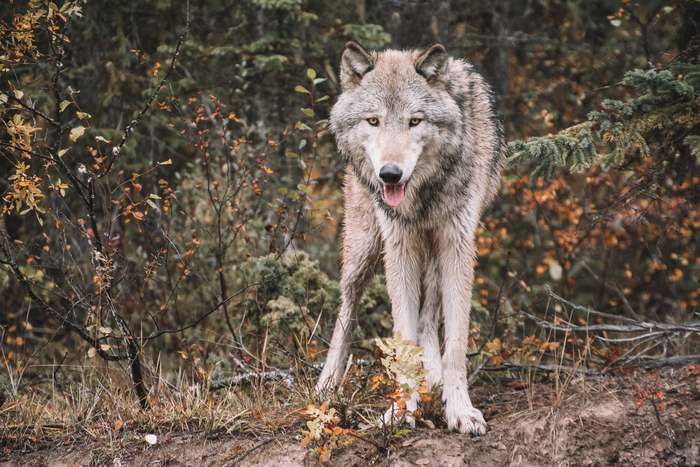As the effects of climate change mount, ecosystem restoration in the US West has garnered significant public attention, bolstered by President Joe Biden’s America the Beautiful plan to conserve 30% of US land and water by 2030. Writing in BioScience, William J. Ripple and 19 colleagues follow up on the Biden plan with a proposal for a “Western Rewilding Network,” comprising 11 large reserve areas already owned by the federal government. The authors advocate for the cessation of livestock grazing on some federal lands, coupled with the restoration of two keystone species: the gray wolf and the North American beaver.

Credit: Photo by Brianna R. on Unsplash
As the effects of climate change mount, ecosystem restoration in the US West has garnered significant public attention, bolstered by President Joe Biden’s America the Beautiful plan to conserve 30% of US land and water by 2030. Writing in BioScience, William J. Ripple and 19 colleagues follow up on the Biden plan with a proposal for a “Western Rewilding Network,” comprising 11 large reserve areas already owned by the federal government. The authors advocate for the cessation of livestock grazing on some federal lands, coupled with the restoration of two keystone species: the gray wolf and the North American beaver.
Wolves and beavers, according to the authors, are notable for their ability to produce broad ecosystem effects. For instance, they say, “by felling trees and shrubs and building dams, beavers enrich fish habitat, increase water and sediment retention, maintain water flows during drought, provide wet fire breaks, improve water quality, initiate recovery of incised channels, increase carbon sequestration, and generally enhance habitat for many riparian plant and animal species.” Wolves share a similar potential to reshape ecosystems, and “could assist in the natural control of overabundant native ungulates,” allowing native vegetation to regrow in previously degraded areas.
The rewilding plan would produce profound cascading effects, say the authors, and could ultimately benefit many of the “92 threatened and endangered species across nine taxonomic groups: five amphibians, five birds, two crustaceans, 22 fishes, 39 flowering plants, five insects, 11 mammals, one reptile, and two snail species.”
The authors cite a number of costs to their bold initiative, including payments to any livestock farmers, who should get just reimbursement for lost grazing allotments on federal lands. Ripple and colleagues argue that these challenges will ultimately prove navigable, in part because meat derived from forage on federal lands accounts for only about 2% of the nation’s production. Furthermore, say the authors, the time is ripe for “ultra ambitious action,” given the “unprecedented period of converging crises in the American West, including extended drought and water scarcity, extreme heat waves, massive fires triggered at least partly by climate change, and biodiversity loss.”
###
BioScience, published monthly by Oxford Journals, is the journal of the American Institute of Biological Sciences (AIBS). BioScience is a forum for integrating the life sciences that publishes commentary and peer-reviewed articles. The journal has been published since 1964. AIBS is an organization for professional scientific societies and organizations, and individuals, involved with biology. AIBS provides decision-makers with high-quality, vetted information for the advancement of biology and society. Follow BioScience on Twitter @AIBSbiology.
Oxford Journals is a division of Oxford University Press. Oxford Journals publishes well over 300 academic and research journals covering a broad range of subject areas, two-thirds of which are published in collaboration with learned societies and other international organizations. The division has been publishing journals for more than a century, and as part of the world’s oldest and largest university press, has more than 500 years of publishing expertise behind it. Follow Oxford Journals on Twitter @OxfordJournals.
Journal
BioScience
DOI
10.1093/biosci/biac069
Method of Research
Commentary/editorial
Subject of Research
Not applicable
Article Title
Rewilding the American West
Article Publication Date
9-Aug-2022




